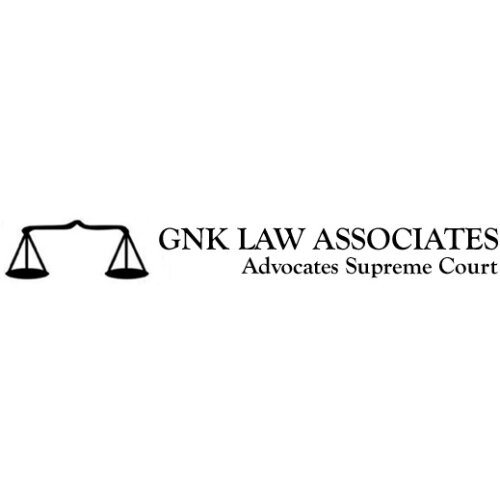Best Government Relations & Lobbying Lawyers in Delhi
Share your needs with us, get contacted by law firms.
Free. Takes 2 min.
List of the best lawyers in Delhi, India
About Government Relations & Lobbying Law in Delhi, India
The field of Government Relations & Lobbying in Delhi, India, involves the strategic management of relationships with governmental entities, policymakers, and regulators. This field facilitates the communication between businesses or other entities and government officials to influence legislative and regulatory policies. Given Delhi's position as the political hub of India, it plays a crucial role in shaping policies that affect both national and regional interests. Legal practitioners in this domain ensure that lobbying activities comply with the local laws and ethical codes, fostering transparent and effective interactions with government bodies.
Why You May Need a Lawyer
Navigating Government Relations & Lobbying in Delhi can be complex due to the intricate layers of legislation and regulatory requirements involved. Here are some common situations where legal assistance may be required:
- Drafting and submitting petitions or proposals to government bodies.
- Understanding and adhering to the legal framework governing lobbying activities.
- Engaging in policy advocacy with compliance to local laws.
- Representing interests before regulatory authorities or legislative bodies.
- Addressing allegations of unethical lobbying practices or legal disputes related to lobbying.
Local Laws Overview
In Delhi, several local and national laws govern Government Relations & Lobbying activities, ensuring transparency and ethics. Key aspects include:
- Regulatory Compliance: Compliance with the Central Government's guidelines for lobbying activities, including registration requirements, if applicable.
- Ethical Standards: Adhering to ethical standards as prescribed by relevant authorities to prevent corruption and ensure integrity in lobbying practices.
- Transparency Norms: Following disclosure norms which require entities to disclose financial contributions and lobbying expenditures for transparency.
- Policy Framework: Understanding pertinent laws, such as the Right to Information Act, which allows access to governmental operations and enhances accountability.
Frequently Asked Questions
What is lobbying, and is it legal in India?
Lobbying involves influencing policymakers to enact or amend legislation in favor of a particular interest. While it is not formally regulated in India, it is considered legal as long as it adheres to ethical practices.
Who can engage in lobbying activities in Delhi?
Businesses, non-governmental organizations, industry associations, and individual advocates can engage in lobbying, provided they comply with relevant laws and ethical guidelines.
Are there specific lobbying disclosure requirements in Delhi?
Yes, while not as stringent as some Western countries, entities may be required to disclose certain financial expenditures related to lobbying activities to ensure transparency.
How can a government relations lawyer help my business?
Government relations lawyers can assist in crafting strategic communication plans, ensuring regulatory compliance, and representing your interests in discussions with government bodies.
What are the consequences of unethical lobbying practices?
Unethical lobbying can lead to reputational damage, legal penalties, and strained relationships with government authorities.
Is there a difference between lobbying and advocacy?
While both aim to influence decision-making, lobbying is specifically directed towards legislative change, whereas advocacy can encompass a broader range of activities, including raising public awareness.
How do I find a reputable government relations lawyer in Delhi?
Research, seek referrals from trusted sources, and verify the credentials and experience of lawyers specializing in government relations and lobbying.
Can foreign businesses lobby in Delhi?
Yes, foreign businesses can engage in lobbying, but they must strictly adhere to Indian laws and ethical standards.
What should I prepare before consulting a lawyer?
Have a clear understanding of your objectives, documentation of any previous interactions with government entities, and any specific regulatory challenges you face.
Is there a specific law governing lobbying in India?
India does not have a specific lobbying law; however, activities must comply with broader legislative and ethical frameworks related to business conduct and anti-corruption.
Additional Resources
Several resources and organizations can provide further assistance:
- Department of Industrial Policy and Promotion (DIPP): Provides guidelines related to industrial policies that may affect lobbying activities.
- Federation of Indian Chambers of Commerce and Industry (FICCI): Offers insights and support on navigating government relations and policies.
- National Institution for Transforming India (NITI Ayog): Engages with policy advocacy and research, helpful for understanding policy landscapes.
- Local Legal Bar Associations: Provide referrals and information on qualified government relations lawyers.
Next Steps
If you require legal assistance in Government Relations & Lobbying, consider taking these steps:
- Conduct a thorough assessment of your legal needs and objectives.
- Research and list down potential legal practitioners or firms specializing in this area.
- Prepare necessary documents and background information relevant to your case.
- Schedule consultations to gauge legal expertise and compatibility with your needs.
- Discuss potential strategies and cost implications with your chosen legal advisor.
Approaching government relations and lobbying with the right legal guidance can ensure compliance, ethical practice, and achieve advocacy goals effectively.
Lawzana helps you find the best lawyers and law firms in Delhi through a curated and pre-screened list of qualified legal professionals. Our platform offers rankings and detailed profiles of attorneys and law firms, allowing you to compare based on practice areas, including Government Relations & Lobbying, experience, and client feedback.
Each profile includes a description of the firm's areas of practice, client reviews, team members and partners, year of establishment, spoken languages, office locations, contact information, social media presence, and any published articles or resources. Most firms on our platform speak English and are experienced in both local and international legal matters.
Get a quote from top-rated law firms in Delhi, India — quickly, securely, and without unnecessary hassle.
Disclaimer:
The information provided on this page is for general informational purposes only and does not constitute legal advice. While we strive to ensure the accuracy and relevance of the content, legal information may change over time, and interpretations of the law can vary. You should always consult with a qualified legal professional for advice specific to your situation.
We disclaim all liability for actions taken or not taken based on the content of this page. If you believe any information is incorrect or outdated, please contact us, and we will review and update it where appropriate.














